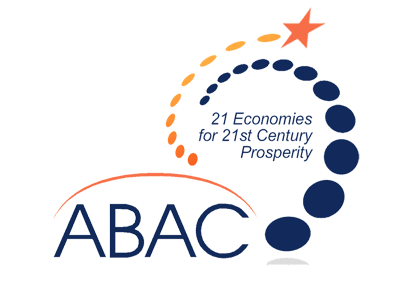APEC business leaders call for engagement in initiatives leading to FTAAP

Asia-Pacific leaders must guard against protectionist responses to global economic challenges by actively pursuing initiatives aimed at achieving open trade and investment.
Business leaders from the Asia Pacific region urged the Asia-Pacific Economic Cooperation (APEC) to give priority to accelerating regional economic integration, developing stronger infrastructure and supply chains, strengthening food security, and fostering innovative growth as it begins its work this year under the Chairmanship of Russia of taking further steps towards realizing the goal of an integrated Asia Pacific economy.
Business leaders representing the 21 economies met in Hong Kong from February 21-24 for the first of four meetings in preparation for developing their recommendations, which they will present to APEC Leaders in Vladivostok in September.
“Central to our agenda this year is the goal of bringing economies closer together by tackling remaining barriers to the free flow of goods, services and investment and in developing collective responses to the shared challenge of the sustainability of economic growth” said the new Chair of the APEC Business Advisory Council (ABAC), Mr. Ziyavudin Magomedov of Russia.
With this in mind, ABAC developed a work program for 2012 under the theme “From Aspiration to Reality” which focuses on liberalizing and facilitating trade and investment leading ultimately to a Free Trade Area of the Asia Pacific (FTAAP), initiating a new services agenda, strengthening energy and food security, establishing reliable supply chains and fostering innovative growth including through technology dissemination and financial instruments. The work on supply chain follows on a report commissioned by ABAC in 2011 that showed the relative importance of supply chokepoints in terms of money and time and identified recommendations to alleviate the impact of these chokepoints. With respect to FTAAP, ABAC has noted the continuing development of a number of possible pathway agreements that could eventually lead to FTAAP and calls for the broadest possible participation in such initiatives among APEC economies.
“The development of SMEs will continue to be a major component of our work program. And since strong financial markets underpin the region’s growth prospect we will also be developing recommendations to APEC Finance Ministers including on such issues as the stability and integration of financial markets, improving financial access for micro, small and medium enterprises, and addressing the implications of current financial systems reform in the G20” added Magomedov.
ABAC also held a dialogue with APEC Senior Officials at the Hong Kong meeting as part of its continuing effort to strengthen collaboration in the development of the APEC work agenda that would reflect the interest of business. The creation of a public private Policy Partnership on Food Security (PPFS) in APEC, which will have its inaugural meeting in Kazan, Russia this year marked a significant advancement of ABAC’s engagement with APEC, having proposed the idea of institutionalizing business input in the development of food security policies some years ago.
About ABAC
ABAC brings together up to three business leaders from each of the APEC’s 21 economies. They provide APEC Leaders with information regarding priorities and concerns of business sector.
For more information, please contact:
Ms. Leyla Mamedzadeh, ABAC Executive Director 2012, Email: [email protected]
Mr. Antonio Basilio, ABAC Secretariat, Tel: (63 2) 845-4564, Email: [email protected]
Mr. Tu Anh Tuan, APEC Secretariat, Tel: (65) 6891 9649, Email: [email protected]

